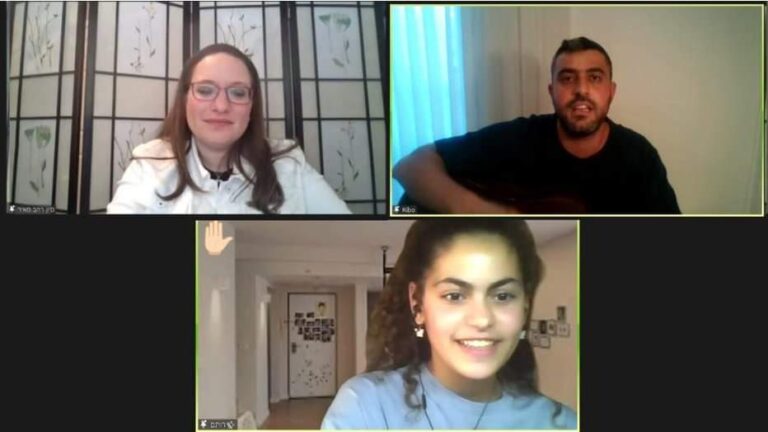Translation by Yehoshua Siskin
I knew that Ishay Ribo could write, compose, record, and sing. Yesterday I discovered that he is also a wonderful speaker. Ribo was a guest at the Nifgashot (teenage girls') workshop. Hundred of girls had the opportunity to interview him via Zoom and here are some of his responses to their questions:
Hadar Shukri asked him about fame. "Fame is a side effect. It's important to remember that. My initial and primary desire was that others should hear what I had to say. They say that if you ask a child today what they want to be when they grow up, they will say: 'Famous.' Okay, fine, but famous for doing what? What do you want to give to the world? Do you want to be an influencer on Instagram? I am not sure that's the right thing for which to strive. It would be preferable, first of all, to think about what you truly want to do in this world and then, perhaps, some fame will attach itself to what you achieve.
Tamar and Emuna asked how he protects his privacy and that of his family: "I never announced this publicly, but over the last two years, I have decreased my presence on social media. This has given me a lot of peace and tranquility. Not to be thinking all the time about what people might say and what I would be expected to say in response. I felt that living by what others might think or say was not good for me. It's necessary to be aware of what goes on around us, to be sure, but not to live according to others' expectations and opinions.
Rotem Levi asked about the songwriting process and his inspiration for songs full of passages and ideas from Torah sources. Ishay answered: "It comes from a place higher than us. The songs are based on Midrash and words of Torah, words of the living God. The words in these songs are not coming from me, but from our daily prayers and from our sages. Therefore, people's souls connect to them. People write: "I do not believe, I am an atheist, but this song touched me. It did something to my heart.' Wait a minute. If you disagree with the content of the song, how could it touch you? Apparently the power of music combined with the power of words that I manage to gather from the Torah, act upon the soul in a way that defies logic."
Towards the end of the conversation, the girls asked Ishay to sing "Sibat HaSibot" (Prime Mover), last year's most popular song in Israel. Yet the words of Yishai to the girls continued to echo in my mind no less than the words of this song.








